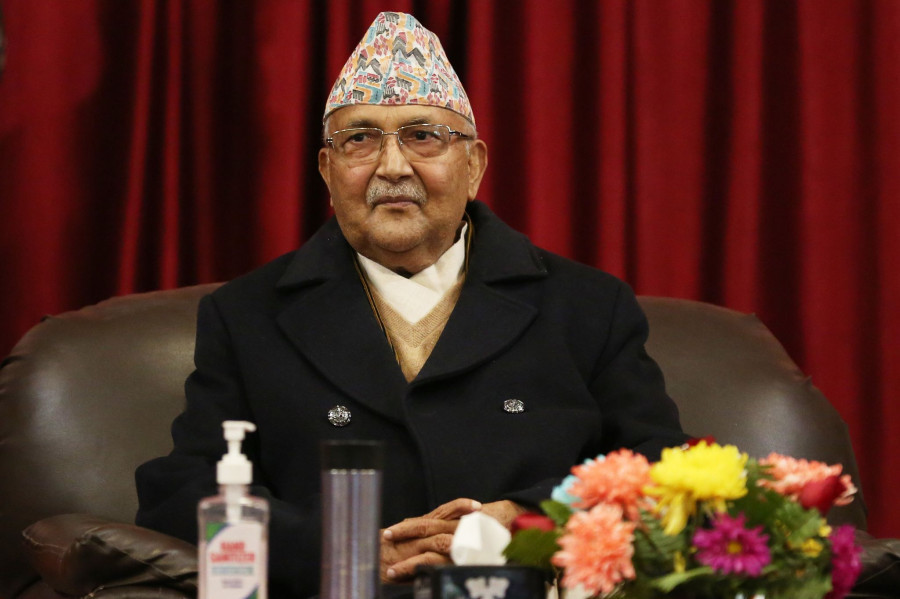Politics
Oli appointed prime minister, days after he lost confidence vote in House
His appointment, as the leader of a party with the highest number of seats in Parliament, follows opposition forces’ failure to ensure the number to form a coalition government.
Post Report
President Bidya Devi Bhandari on Thursday evening appointed KP Sharma Oli as the prime minister as per Article 76 (3) of the constitution.
Oli’s appointment comes three days after he lost a vote of confidence in the Parliament.
President Bhandari on Monday had given parties until 9pm Thursday to stake claim to the government as per Article 76 (2) of the constitution.
However, the Nepali Congress and the Communist Party of Nepal (Maoist Centre) could not cobble together the numbers to prove a majority. Both the parties said on Thursday evening that they were not going to lay claim to a coalition government, as they could not garner the required number.
Political drama unfolded in Kathmandu since early morning. The Madhav Kumar Nepal-Jhala Natha Khanal of Oli’s CPN-UML that was planning to send resignation of its lawmakers, as many as 20, backtracked. The Mahantha Thakur-Rajendra Mahato faction of the Janata Samajbadi Party decided to throw its 19 lawmakers’ weight behind Oli.
Though the Upendra Yadav-Baburam Bhattarai faction of the Janata Samajbadi Party was willing to support the Congress-Maoist Centre alliance, it lacked enough numbers to help form a coalition government.
Later in the evening, after the parties could not meet the 9pm deadline, the Office of the President in a notice said that no party had come forward to stake claim to form a government as per Article 76 (2) as invited by the President on Monday.
About an hour later, in yet another notice, the Office of the President said the President appointed Oli prime minister as the leader of a party that commanded the highest number of members in the Parliament.
Oli’s UML has 121 members in the House.
The Congress and the Maoist Centre, with 61 and 49 votes, respectively, needed 26 more to claim the majority to form a coalition government. The two parties were also expecting that as many as 20 lawmakers from the Nepal faction would resign, which would have brought the House strength down to 251, thereby taking the magic number to 126. In that case, with around 15 votes from the Upendra Yadav faction of the Janata Samajbadi and one vote from any of the three parties, which have one seat each in Parliament, the Congress-Maoist Centre alliance had a chance of forming a new government.
“After the Mahantha Thakur-led faction of the Janata Samajbadi Party declined to support us, chances of forming a coalition government under the leadership of the Nepali Congress have come to an end,” Congress President Sher Bahadur Deuba told his party’s office bearers after a meeting.




 18.12°C Kathmandu
18.12°C Kathmandu














